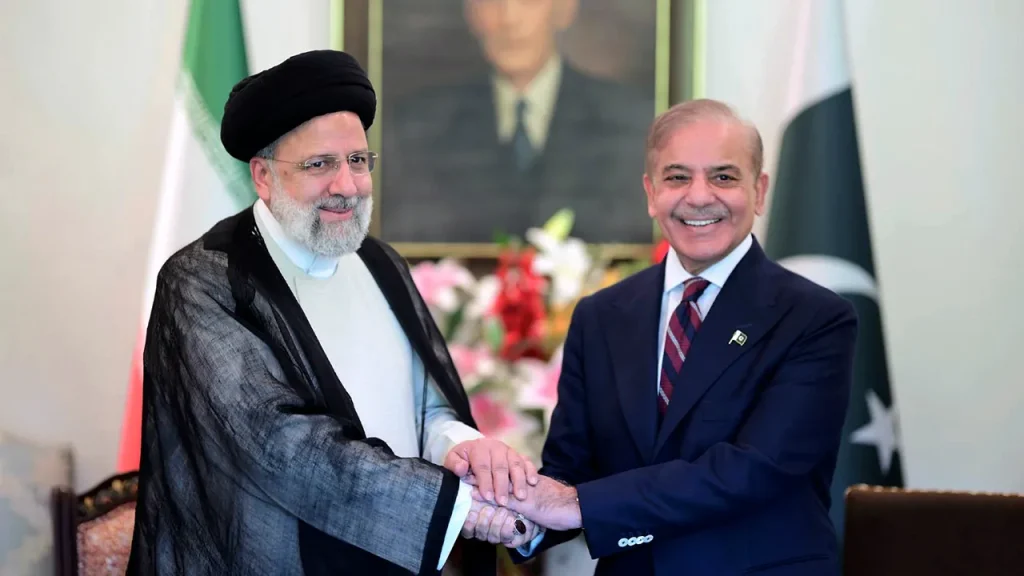Pakistan and Iran have pledged to work together to combat militants operating from Afghanistan, recognizing the threat they pose to regional and global security. The commitment comes after a three-day visit by Iranian President Ebrahim Raisi to Islamabad, where he met with Pakistani President Asif Ali Zardari, Prime Minister Shehbaz Sharif, and other officials. The joint statement issued after the visit emphasized the need to enhance cooperation on counter-terrorism and security and to develop a united front against terrorism. Both countries have experienced an increase in militant violence, with Pakistan blaming attacks on the Pakistani Taliban based in Afghanistan, while Iran has also faced attacks by an Islamic State affiliate based in Afghanistan.
The visit was seen as an effort to mend ties that were strained in January when both countries carried out strikes in each other’s territories targeting militants. The joint statement also highlighted the importance of regular cooperation between political, military, and security officials to combat other threats such as narcotics smuggling, human trafficking, hostage-taking, and money-laundering. The countries agreed that their common border should be a “border of peace and friendship” and expressed a commitment to expand trade and economic cooperation. They also pledged to set up new border markets, new border crossings, and economic free trade zones.
In recent years, Pakistan has urged Iran to take action against Pakistani insurgents living near the border, who often target security forces in Baluchistan. The region has been the scene of low-level insurgency by separatists for more than two decades. The joint statement also condemned the suspected Israeli strike targeting a consular building next to the Iranian Embassy in Syria, which killed two Guard generals and others. In response, Iran carried out direct strikes on Israel. The two countries also discussed how to proceed with their gas pipeline project, which was launched in 2013 to supply Iranian natural gas to energy-starved Pakistan but has been on hold due to fears of U.S. sanctions.
Afghanistan’s Taliban government has denied allowing the Pakistani Taliban or any other militant group to use its soil to launch attacks against other countries. However, Pakistan has accused the Afghan Taliban of providing safe havens to the Pakistani Taliban, leading to a surge in attacks in Pakistan since the Afghan Taliban came to power in 2021. In March, the Pakistan Air Force targeted multiple suspected hideouts of the Pakistani Taliban inside Afghanistan, prompting return fire from Afghan forces. Tehran has also blamed the Islamic State affiliate based in Afghanistan for recent attacks in Iran. The affiliate is active in Pakistan’s southwestern Baluchistan region bordering Iran, causing security concerns for both countries.
Pakistan and Iran have expressed a commitment to enhance efforts at a “united front” against terrorism by strengthening cooperation on counter-terrorism and security. Both countries have faced challenges from militants operating from Afghanistan, leading to a surge in violence and insecurity in the region. The joint statement issued after Iranian President Ebrahim Raisi’s visit to Islamabad emphasized the need for regular cooperation between political, military, and security officials to combat threats like narcotics smuggling, human trafficking, and money-laundering. Additionally, Pakistan and Iran have pledged to expand trade and economic cooperation by setting up new border markets, crossings, and free trade zones. The two countries have also condemned the suspected Israeli strike on an Iranian consular building in Syria and discussed how to proceed with their gas pipeline project, despite concerns about U.S. sanctions.


